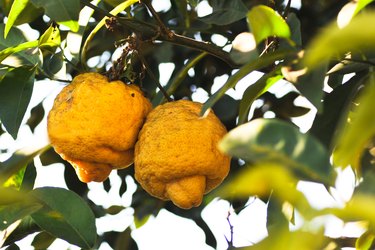
Whether you grow it for its fresh fragrance, showy flowers or versatile fruit, the lemon tree (Citrus limon) does well as an outdoor tree or an indoor potted plant. It grows outdoors in the warm climates of U.S. Department of Agriculture plant hardiness zones 9 through 11, and is vulnerable to frost, bacterial infection and a variety of pests. The appropriate pest treatment depends on the kind of damage and the type of bug.
Lemon Pests
Video of the Day
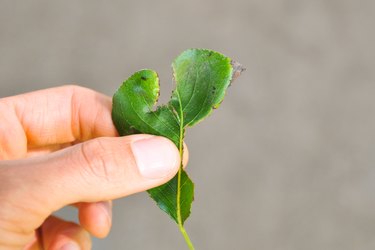
Leaf-dwelling lemon pests include mites, snails, aphids, psyllids and mealybugs. Adult Diaprepes root weevil, an introduced pest, feeds on lemon foliage while its larvae feed on the roots, causing extensive damage. Red imported fire ants damage twigs and bark of young lemon trees. Scale insects target the leaves and twigs of the lemon tree and can cause significant damage.
Video of the Day
Cultural Controls
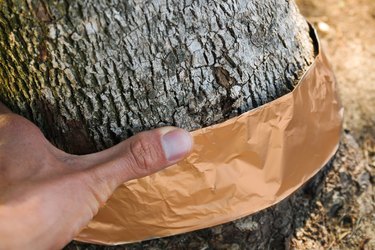
Wrap the lemon tree trunk with a band of copper foil to deter snails. Use sticky horticultural tape around the trunk and prune branches up to 30 inches from the ground to block ants and other non-flying leaf pests. Keep the tree healthy to prevent damage from root weevils with proper watering.
Natural Predators
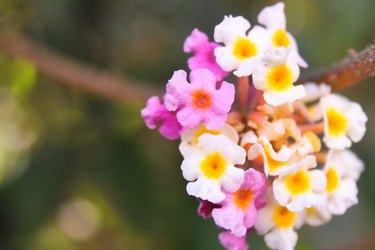
Natural predators generally control lemon tree pests. Ladybugs, lacewings, syrphid flies and parasitic wasps target aphids, scale, mealybugs, root weevils, mites and psyllids. Avoid using broad-spectrum insecticides in your garden because they kill both beneficial and pest insects. Plant a variety of plants with nectar and pollen sources around the edge of your yard to invite and maintain beneficial insect populations.
Horticultural Oil
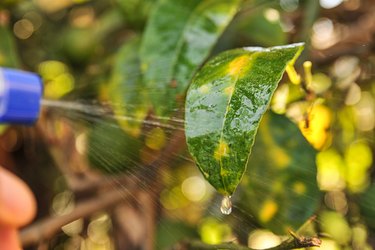
When natural predators aren't keeping bugs in check, horticultural oil helps eliminate most leaf-dwelling lemon tree pests without adverse effects on people, wildlife or the lemons. The oil, available at garden centers, works on contact by blocking the pests' breathing tubes. Mix 2 1/2 ounces of horticultural oil and 1 gallon of water in a garden sprayer. Spray all surfaces of the lemon tree's leaves, along with the stems and twigs where bugs may be hiding. Apply on a calm, mild day. Avoid breathing the mist and protect your eyes while spraying. For indoor lemon trees infested with aphids, mealybugs or mites, wipe the pests off with a cotton swab soaked in isopropyl alcohol. Repeat the process a week later to get rid of any subsequent generations.
- Missouri Botanical Garden: Citrus Limon
- Purdue University, Center for New Crops and Plant Products: Lemon
- UC Statewide IPM Online: Citrus -- Young Tree Pests and Their Damage
- University of California Division of Agriculture and Natural Resources: Diaprepes Root Weevil
- UC Statewide IPM Online: Citrus -- Brown Garden Snail
- The National Gardening Association: Plant Care Guides -- Citrus
- University of California Division of Agriculture and Natural Resources: Asian Citrus Psyllid
- North Carolina State University Cooperative Extension: Encourage Existing Beneficial Insects
- University of Florida IFAS Extension: Citrus Problems in the Home Landscape